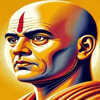Chanakya on Friendships: Why Fools Forgive Too Fast
Times Life | June 21, 2025 1:39 AM CST

1. Chanakya Didn’t Romanticize Friendship—He Respected It We grow up with ideas like
“forgive and forget,” or
“real friends always find their way back.” But Chanakya viewed life through a lens of
rational observation, not emotional idealism.
He believed that
friendship is a contract—unwritten, but real. If broken, it deserves scrutiny, not immediate restoration.
“One must test a friend in adversity. A friend who disappears when needed was never your friend.”Let that sink in. Real friends are revealed not by their words, but their consistency.
2. Forgiveness Without Accountability Is Self-Sabotage
 There’s strength in forgiveness—but there’s also stupidity in premature reconciliation. Chanakya’s view?
Forgive when it serves justice, not just comfort.
There’s strength in forgiveness—but there’s also stupidity in premature reconciliation. Chanakya’s view?
Forgive when it serves justice, not just comfort.
When we forgive too quickly:
- We skip lessons the pain was meant to teach us.
- We allow patterns to repeat.
- We send the message: “It’s okay to hurt me. I’ll let it slide.”
3. How to “Test” a Friend — Chanakya Style In Chanakya Niti, he suggests five ways to evaluate a true friend:
“The one who stays with you in misfortune and doesn’t vanish in your storm—he is your real friend.”So, if they vanished when you were grieving, went silent when you succeeded, or mocked your pain—maybe you’re not being “kind” by forgiving them. You’re being blind.
4. Forgiveness Can Be Passive Aggression in Disguise Sometimes we forgive to avoid conflict. Sometimes we do it to look like the bigger person.
But deep down, we carry resentment. That emotional buildup leaks into our future friendships.
Chanakya would call this emotional mismanagement.
His approach? Be upfront. Either rebuild with caution, or walk away with clarity.
5. How to Distance Yourself — Without Guilt or Drama
 Chanakya was the king of
diplomatic silence. He advised keeping
enemies close—but with boundaries.
Chanakya was the king of
diplomatic silence. He advised keeping
enemies close—but with boundaries.
If you’ve decided someone’s no longer good for you:
- You don’t owe them closure.
- You don’t need to explain your healing.
- You don’t have to remain friends to look “civil.”
6. But Doesn’t Forgiveness Lead to Peace? Yes, it does. But peace isn’t the same as access.
You can forgive someone…
…and still choose not to invite them back into your life.
…and still decide they’re not safe to trust.
…and still protect your energy.
“You may forgive, but never forget the lesson.” — That’s Chanakya’s essence.7. The Myth of “Unconditional Friendship” In our culture, we’re taught to be loyal to a fault. But unconditional love without mutual respect is not noble—it’s naive.
Chanakya reminds us:
“Just as a mirror reflects one’s face, a friend reflects your value.”So if your friend:
- Keeps crossing your boundaries
- Only comes around when it suits them
- Disrespects your time, feelings, or efforts…
It’s self-defense.
8. What I Wish I Knew Earlier I used to think setting boundaries meant I was being selfish.
Now I know: Boundaries are what keep friendships real.
I’ve learned to:
- Forgive when I’m truly ready—not out of pressure.
- Walk away without causing a scene.
- Rebuild only when the other person takes accountability.
Friendship Isn’t About Forever—It’s About Effort
 True friendship survives honesty, not just history.
True friendship survives honesty, not just history.
So if you’ve been forgiving too quickly, too often, ask yourself:
- Are you healing… or just avoiding?
- Are you choosing peace… or fearing conflict?
- Are you being a friend to them… while abandoning yourself?
“He who protects himself first can protect others better.”Explore the latest trends and tips in Health & Fitness, Travel, Life Hacks, Fashion & Beauty, and Relationships at Times Life!
READ NEXT
-
OSSC CRE admit card 2024 out for typing test; here's direct link

-
Queer writings from South Asia: A woman feels at home in the bathroom, the devil's abode

-
River Island to shut 33 stores as closures put hundreds of jobs at risk

-
BREAKING: Assisted dying law PASSES Commons in historic moment

-
Ravana, the First Kanwariya? The Dark Myth Behind the Sacred Journey
